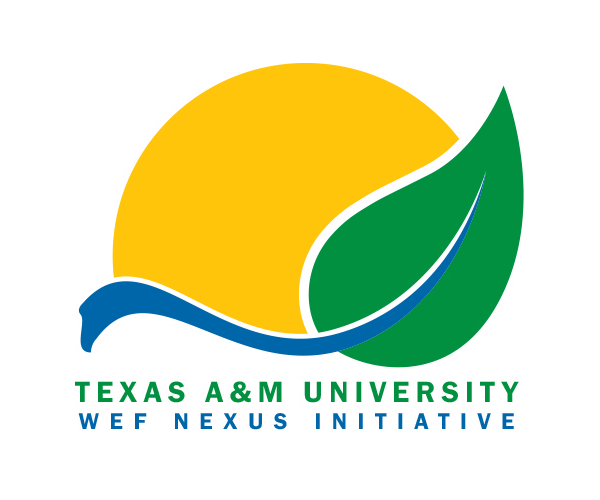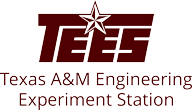
In 2015, Texas A&M University established the Texas A&M Water-Energy-Food Nexus Initiative (WEFNI) to assemble and catalyze the research, educational, and scientific resources of various Texas A&M University colleges around a growing area of research focus – the Water-Energy-Food Nexus.
The Texas A&M WEF Nexus initiative was founded and coordinated by Dr. Rabi Mohtar, TEES Research Professor in the Department of Biological and Agricultural Engineering and the Zachry Department of Civil Engineering at Texas A&M University, College Station. Mohtar is also Dean of the Faculty of Agricultural and Food Sciences at the American University of Beirut.
Over the last four years, WEFNI has actively addressed current and global environmental challenges that hinder the production and distribution of resources and worked to uncover the links between three pertinent systems – water, energy, and food – that contribute to the security of basic human needs.
The Water-Energy-Food Nexus highlights the inherent and challenging interconnectedness of water, energy, and food. By taking an approach that considers the Water-Energy-Food Nexus, scientists and researchers are aided in their quest for solutions to global issues plaguing communities: hunger, climate change, and population growth, etc. The end result is ideally an improvement to the quality of life within those communities.
There is a dire need for diverse research groups to meet “around the table” and collectively search for potential solutions to the problems surrounding the interconnections between water, energy, and food resources. These problems are further compounded because they are highly complex and the availability of the resources is increasingly stressed by climatic, social, political, economic, demographic, technological, and other pressures.
Soon after its inception, the WEF Nexus Initiative assembled a multidisciplinary group of highly qualified scientists and professionals and focused on finding and implementing solutions to the nexus grand challenges through shared research, knowledge, and skills. This assembled group at Texas A&M and supported by the Chancellors office, included the Division of Research, the College of Engineering, the College of Agricultural and Life Sciences, the College of Geosciences, the Bush School of Government and Public Service, and more.
Some of these grand challenges included: protecting the environment, educating and inspiring young minds, improving physical health, and providing further development for the economy. The initiative’s goal was to raise the consciousness and understanding of disciplinary languages to encourage professionals from different fields to leave their silos so that the grand challenges could be addressed and solutions could be discovered and implemented in order to provide a nexus.
“The grand challenges approach helped us discover that we must come out of the silos,” said Mary Schweitzer, program manager at Nexus Research Group, Texas A&M University. “Those working on governance and policy at the Bush School need to know about the bio-physical system of water, energy, and food and vice versa, the science and engineering community needs to know about the social dimensions of the nexus. We have to talk to one another, raise consciousness and make it possible for people to understand and respect and share disciplinary knowledge with other fields – becoming inter-disciplinary.”
One of the most prominent WEF Nexus projects was the San Antonio Case Studies – WEF Nexus Initiative (SACS-WEFNI) led by Mohtar and coordinated by a team of A&M scientists including Bruce McCarl (Ag Econ), Kent Portney (Bush School), Stratos Pistikopoulos (Chem Eng), Rudy Rosen (Water Science, San Antonio), Jack Baldauf (Geosciences), and David Baltensperger (Soil & Crop Science). This team led a group of more than 30 faculty, 6 Ph.D. and 8 MSc students carrying out the research between 2015 and 2018.
The San Antonio region has significant resource complexity and has attracted the attention of scientists as a region of study because of its population growth and role to the state and nation in food production.
The case studies were meant to aid scientists and policymakers in developing a strategy that incorporates the interconnectedness of water, energy, and food. Through the SACS-WEFNI, the trade-offs between water, energy, and food became better understood.
One primary goal of the SACS-WEFNI project was the implementation of knowledge gleaned through science to reach policymakers and eventually impact the policies themselves. This involved efforts to translate the science of the interconnectedness of water, energy, and food into a way that is understandable to the layperson, politicians, and policymakers.
“Giving the layperson the tools of science to understand these trade-off mechanisms in planning for the future leads to greater resilience,” said Schweitzer.
With a rapidly growing population and agricultural demands, it is expected that in the near future the San Antonio area will face further challenges in its resources. Through the SACS-WEFNI project, these needs were anticipated and tools developed to provide the data to help address them.
This major project contributed to the cultivation and publication of multiple articles in the Science of the Total Environment (STOTEN) journal, an international, peer-reviewed journal that highlights the relationships between the environment and people, through scientific research. The initiative also produced more than 50 peer-reviewed publications, two special issues, multiple town halls, NSF symposium (1707019) and proceedings, considerable stakeholder engagement across Texas and beyond. It also is directly related to several seed grants and an NSF project (award number 1739977), and seed funding from the Texas A&M TEES Energy Institute. Several proposals are in review, including one for an NSF Research Coordination Network. Numerous policy papers were published and presented, including at the World Water Forum and the World Water Council. Articles published since the completion of the SACS-WEFNI project emphasize the opportunities for development in the economy, society, and the environment – through the WEF Nexus approach.

